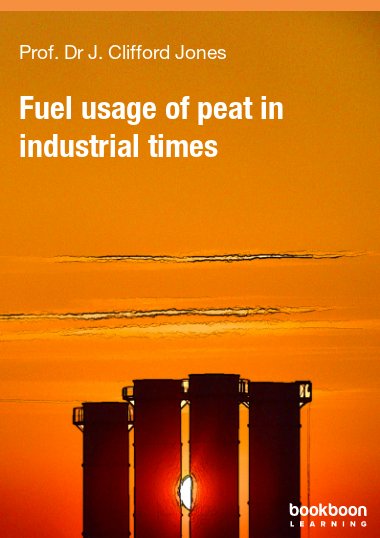Electricity production with peat internationally is covered, with some emphasis on Finland and the Republic of Ireland. Less developed countries covered include Rwanda. Peat in briquetted or pelletised form is discussed next, and coverage of peat in carbonised form follows. Steam activation of the carbonised product to make an adsorbent carbon features with some numerical details. Use of peat as a general-purpose solid fuel, in recent times and less recent, follows and there is description of peat fuel for locomotives. All of this is to the accompaniment of illustrations, figures and tables. In recognition of the importance of controlling sulphur emissions in combustion processes, the sulphur contents of peat from various sources are given and sulphur dioxide control measures outlined. Next come gasification and liquefaction, including producer gas manufacture and retorting. The role of peatlands in carbon sequestration has major coverage and this is seen as being a significant bonus for readers.

